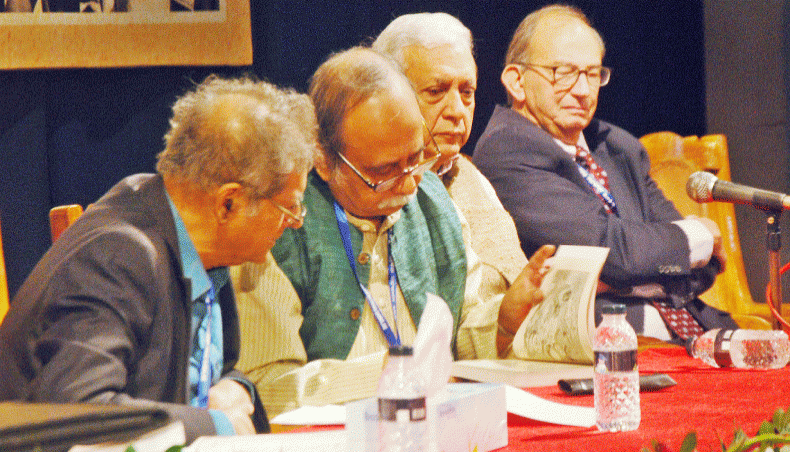Documentation of 1971 genocide demanded
Academics and anti-war campaigners from home and abroad on Saturday underscored the need of proper documentation of genocide committed during Bangladesh’s war for independence in 1971 and demanded trial of the perpetrators in the international court of justice.
At a seminar at the Bangla Academy in Dhaka on ‘1971: Genocide, Torture and Liberation War’ they urged the academics and researchers to come forward for documentation of the genocide committed by the Pakistani occupation forces on Bangladeshis in 1971.
Centre for Genocide, Torture and Liberation War Studies organised the seminar, where local and international delegates were present.
Addressing as chief guest, prime minister’s international affairs adviser Gowher Rizvi said there were local and international propagandas against the genocide committed by Pakistani forces in 1971.
‘The documentations should be aimed to disclose the truths,’ he said.
Thomas A Dine, an anti-war campaigner from the USA, said the killing in Bangladesh from March 25, 1971, was ‘intentional, planned, and it was systematically carried out by Pakistan army with the cooperation from civilian leaders’.
He praised Bangladesh for giving humanitarian assistance to Rohingya people who fled atrocities by Myanmar forces and took refuge in Bangladesh in recent months.
‘In recent month Bangladesh has opened its land and resources for Rohingyas. They have not driven them away, whereas the Europeans drove away the Syrians and other Middle Eastern refugees fleeing atrocities at home.’
Journalist Hiranmay Karlekar of India said he would not believe that such an atrocity was committed by the Pakistani Forces if he had not witnessed it.
Presenting keynote paper, campaigner of trail of war criminals, Shahriar Kabir, said the perpetrators of the genocide never admitted that they have committed the crime.
‘It is most horrendous genocide after WWII,’ he said.
Freedom fighter Quazi Sajjad Ali Zahir (Bir Pratik) expressed his frustration that where a single killing was considered a murder, the killing of millions of Bangladeshis remained just a statistics.
Presiding over the seminar, Dhaka University history professor Muntassir Mamoon said the recognition of genocide and trials of the perpetrators were important to stop further genocide.
Making an example, he said the ongoing genocide on Rohingyas continued for decades as the perpetrators were not tried over the years.
News Courtesy: www.newagebd.net











